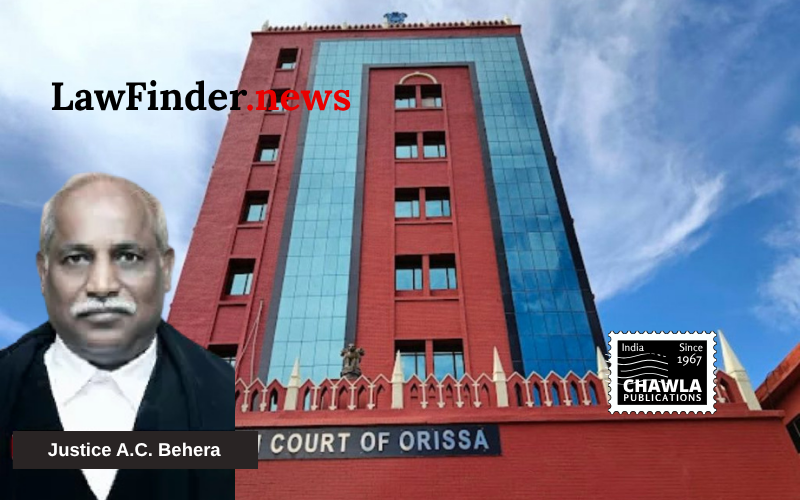Orissa High Court Upholds Trial Court's Verdict, Rejects Adoption Claim in Property Dispute. Adoption under Hindu law requires strict proof, sale deeds held valid due to lack of evidence of fraud.
In a significant ruling, the Orissa High Court has upheld the decision of the trial court, rejecting the adoption claim made by Upendra Dash and validating the sale deeds executed by Mukta Dibya in favor of Prasanna Kumar Dash. The case revolved around Upendra Dash’s claim to the inheritance of Bharat Dash’s properties based on an alleged adoption, which was contested by Prasanna Kumar Dash.
The bench, presided by Justice A.C. Behera, emphasized the necessity of a valid "giving and taking ceremony" and the indispensable consent of the natural mother for a lawful adoption under the Hindu Adoption and Maintenance Act, 1956. The court found the evidence presented by Upendra Dash insufficient to establish a valid adoption. Key witnesses failed to corroborate the presence or consent of Upendra’s natural mother during the alleged adoption ceremony, leading to the conclusion that the adoption claim was unsubstantiated.
Furthermore, the High Court overturned the first appellate court’s decision, which had erroneously recognized the adoption despite the absence of essential legal requisites. Justice Behera highlighted that mere documentary evidence indicating Upendra as the son of Bharat Dash could not substitute the legal requirements for a valid adoption.
The court also addressed allegations of fraud regarding the sale deeds executed by Mukta Dibya. It noted the lack of specific pleadings or evidence to substantiate claims of fraud or misrepresentation by Prasanna Kumar Dash in acquiring the properties. The deeds were deemed valid as they were executed with full knowledge and intention by Mukta Dibya, who had a history of selling properties independently.
This judgment reinforces the strict adherence to statutory requirements for adoption under Hindu law and emphasizes the burden of proof on claimants alleging fraud in property transactions. The verdict confirms the trial court’s dismissal of Upendra Dash’s suit, thereby affirming Prasanna Kumar Dash’s title over the disputed properties.
Bottom Line:
Adoption under Hindu law requires strict proof of giving and taking ceremony, and the consent of the natural mother is mandatory. Mere creation of documents cannot substitute the essential requirements of adoption. Sale deeds executed by the vendor were held valid as there was no legally admissible evidence of fraud or misrepresentation.
Statutory provision(s): Hindu Adoption and Maintenance Act, 1956 - Sections 6 and 7, Evidence Act, 1872 - Section 101, Contract Act, 1872 - Sections 19 and 20, Civil Procedure Code, 1908.
Prasanna Kumar Dash v. Upendra Dash, (Orissa) : Law Finder Doc Id # 2785564




